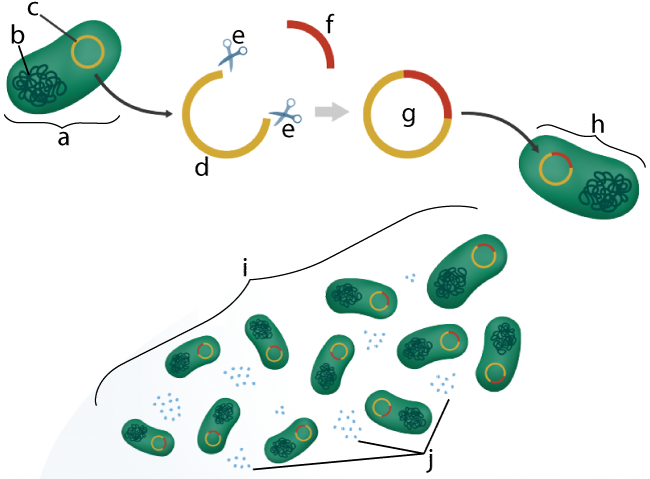
Samuel F.B. Electrical engineering has grown to be more than just a subject of study since Samuel F.B. Morse created the telegraph. Even though the need for electrical engineers was not evident for forty years, Alexander Graham Bell's invention the telephone and Thomas A. Edison the incandescent lamps created new and pressing needs. More jobs were created by Edison's first centrally-generated plant. What is the best way to go?
Electrical engineering is a broad field
Electricity is a common means of power and information transmission. Many sub-disciplines exist in electrical engineering. Some electricians specialize in one sub-discipline while others work with multiple fields. Some of these areas are also considered disciplines. These are the top types of electrical engineering jobs. Each one will require you to be familiar with it! Even if you think you know enough about electricity, you will need the proper qualifications to keep up.

It can be divided into a number of specializations.
There are many specializations available in the field. The most important is the electronic computer branch. It was created during World War II. The fields of engineering and computer science have also attracted members from other areas, such as logicians and language specialists. Another branch of electric engineering is power and light. These two areas are specialized in the design, manufacturing, and maintenance electric light and power systems. Lighting systems, appliances and turbines are all examples of electrical engineering.
This requires an in-depth understanding of technical areas
Electrical engineering, like any other profession, requires an in-depth knowledge of technical areas. Electrical engineers use their technical knowledge to improve production, testing and maintenance processes. It is also full of diverse challenges. To be successful in this field, engineers must have soft skills. This type of work requires one to be able to keep up with technological changes and to be open to new problem-solving approaches.
It is a good degree of "feeder".
The program curriculum for Electrical Engineering is excellent and covers physical sciences, math, and engineering, along with humanities and social science. This broad curriculum offers a foundation for many different career options. Internships in the industry can help prepare students for a number of fields, including the transmission and distribution of power, communications, and semiconductor devices. Students can also opt to specialize in an area of electrical engineer.

It's a career that is well-suited for those with electronic experience.
Before you can become an electrical engineer, you must complete a bachelor's degree in electrical engineering. Although employers expect you to have an advanced degree in the field of electrical engineering, there are some colleges that offer associate's degrees which can help you prepare for further study. While these programs do not offer the same career opportunities as four-year degrees, they can help to determine if this is the right profession for you. Continue reading to learn about the process for becoming an electrical engineer.
FAQ
Which engineering career is best suited for girls?
Girls are always looking to find a safe space where they learn how to make a better tomorrow for themselves. They need to know that engineering is not just for boys. Engineering can help them to become successful women who are able to contribute positively in society and their families.
Engineering is a career that young women can choose because of the many opportunities it provides to acquire skills and knowledge that could lead them to a fulfilling career. It gives her confidence and independence.
It allows her and others to make a positive difference in their lives and the surrounding environment.
We have made this website to encourage girls interested in studying engineering at college. We want them to see the beauty of engineering.
We hope that you find our site useful and enjoyable. We are here to help you if there are any questions.
Engineering: What is it?
Engineering is, simply put, the application of scientific principles for useful things. Engineers use their knowledge of mathematics and science to design and produce machines, vehicles.
Engineers are involved in many areas, including research and development, production maintenance, testing, quality assurance, sales, marketing management, consulting law, politics, finance and human resources administration.
Engineers have many responsibilities. They can design and build products, systems and processes; manage projects; perform tests and inspections; analyze data; create models; write specifications; develop standards; train employees, supervise workers and make decisions.
Engineers have the ability to specialize in a variety of fields including electrical, chemical and civil.
Some engineers are more interested in specific types of engineering than others, including aeronautics and biotechnology, computing, electronics energy, industrial, maritime, medicine, nuclear, robotics space transportation, telecommunications and water.
Are there any requirements for engineering studies?
No. No. All that's required is a good grade in your GCSEs. Some universities require that applicants achieve certain academic achievements before they can be accepted. Cambridge University, for example, requires that applicants obtain A*-C grades on Maths, English Language and Science.
These requirements are not met, so you may need to take additional courses to prepare you for university entrance exams.
Additional maths/science subjects or a language course might be required. Talk to your school guidance counselors for more information.
Is engineering hard to learn?
It depends what you mean with "hard". If you mean difficult, then it's true. But, if boring is what you are referring to, then it's false. Engineering is not difficult, but it does require a lot maths and physics.
Learn how to do anything if you are interested. You don't have to be an engineer to become an engineer.
Engineering can be fun as long you do something you enjoy.
Engineering is not difficult if one knows everything. But this isn't true at all.
Engineers can be boring because they haven’t tried it all.
They just keep doing the same old thing every day.
There are many ways to solve problems. Each approach has its advantages and disadvantages. They all have their advantages and disadvantages, so try them all and decide which one you like best.
Elon Musk is a type of engineer.
He is an inventor who loves to think out of the box.
He is also a risk taker.
He's not afraid to experiment with new ideas and is open to taking risks.
Elon Musk, a great example of someone who thinks and acts differently to others, is a great example. He doesn't listen to what others say. Instead, he experiments with his own ideas before deciding whether or not they work. He will change them if they don't work until he comes up with something that does. He is able to develop new ideas and solve problems.
Do I need a degree for engineering?
An engineering degree does not necessarily require a bachelor's. Employers prefer candidates with degrees. Online classes are also available if you don’t have a degree.
Statistics
- 2021 median salary:$95,300 Typical required education: Bachelor's degree in mechanical engineering Job growth outlook through 2030: 7% Mechanical engineers design, build and develop mechanical and thermal sensing devices, such as engines, tools, and machines. (snhu.edu)
- Typically required education: Bachelor's degree in aeronautical engineering Job growth outlook through 2030: 8% Aerospace engineers specialize in designing spacecraft, aircraft, satellites, and missiles. (snhu.edu)
External Links
How To
How to create letters for engineering drawings
The engineering drawings are made up of both architectural drawings (also known by technical drawings) as well as engineering sketches. The first type describes the product's physical features, while the second one shows how the product should look. Both types include detailed specifications, dimensions, symbols, text, and arrows. Engineers use their own language when writing these documents. These units are abbreviations or acronyms that refer to particular units of measurement. These terms are known as engineering lingo. This article explains what they mean.
A letter is a formal, written communication between an individual or group. A standard letter includes a salutation, signature and date. Most people add a self-introduction to the beginning of each letter. Some letters may contain business details, such as legal agreements. Some letters may contain only greetings or signatures.
An engineer uses professional experience to develop a plan, design a machine, build a bridge, or draw a diagram. Engineers must communicate clearly in order to convey their work. Technical terms describe the product, process, materials, and methods.
Engineers may use a variety of terms to describe things. For example, they use "ampere" to talk about electrical current. For mass measurement, they might use "kilograms per meter squared". These terms are called scientific names. Common names are used by engineers to refer to these terms. Common names are easier to remember and understand.
Technical terms are often abbreviated. An abbreviation can be used to denote a longer term. For example, "kW" stands for kilowatt. The term "KW", which stands for kilowatt, is easy to remember. You don't have to memorize the full name.
Engineers can also use many other abbreviations, acronyms, and technical terms. These are similar abbreviations to acronyms but can also be composed of multiple words. Some examples include "IEC", DIN, and "ANSI." These are vital because they speed up communication.
Engineers do not always use the same spelling rules as others when they use their jargon. They may spell out numbers with digits instead of using numerals. They might use different capitalizations to normal. Capitalization refers the way a word is capitalized. Words that begin with a vowel sound can be spelled differently to words that begin with consonants.